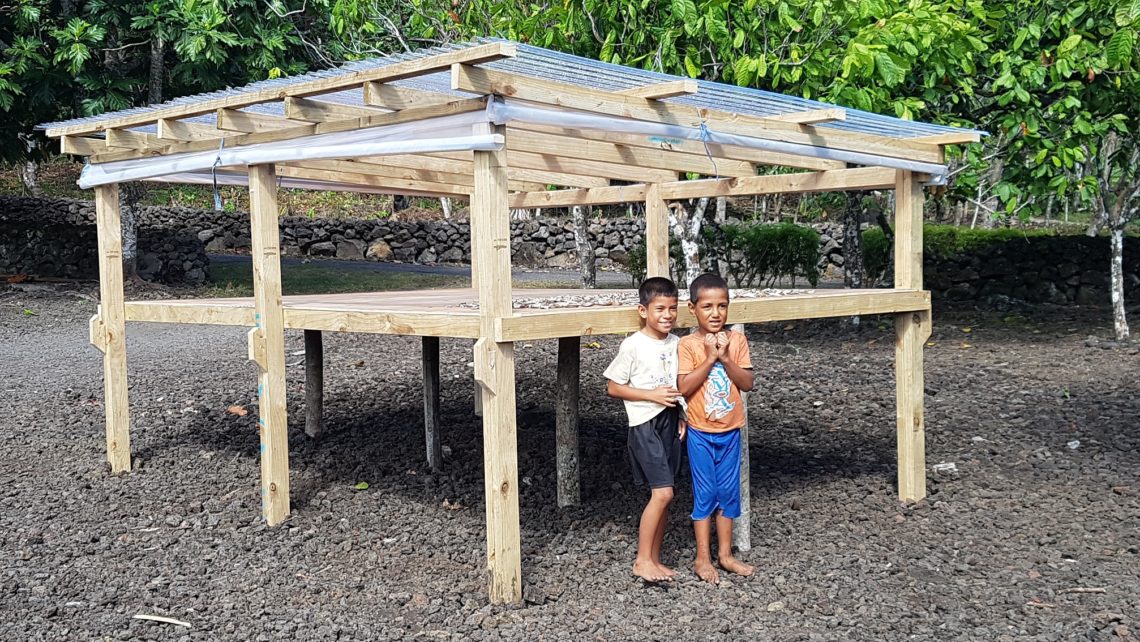Context: Samoa is experiencing the effects of global trends which contribute to unemployment. The national unemployment rate increased from 5.7 per cent in 2011 to 8.3 per cent in 2012. Moreover, the youth unemployment rate was recorded at 16.4 per cent in 2012, twice that of the national rate. Unemployment was higher for females at 20.2 percent, compared to males at 14.0 percent. Against this backdrop, the Savaii Koko Cooperative Farming project aims to addresses unemployment for selected youth in five rural communities on the Island of Savaii. All communities are commonly known to plant Samoan cocoa, traditionally referred to as the koko bean.
Implementation of programme/initiative: The project is a partnership between the Government of Samoa and Savaii Koko Farms, and is administered by the Samoa One UN Youth Employment Project (YEP). The initiative aims to employ up to 50 young people from five villages. UNDP has provided $60,000 in direct funding for the project.
The main objectives of the project are:
1. Provide employment pathways for out-of-school youth
2. Strengthen private-public partnerships between rural communities and private partners
3. Strengthen and promote assets-based development focusing on Samoan cocoa
Main challenges: There have been two main obstacles to the project implementation. First, the supply to meet demand for Samoan brand chocolate at the Whittaker Chocolate factory has fallen significantly short. Second, raising interest in engaging in the cocoa industry has proved difficult. In addition, the decline in markets for taro has frustrated and discouraged farmers for decades while the availability of schemes for seasonal labouring work in New Zealand and Australia has led many to look for opportunities to travel abroad through these schemes. The Government, through YEP, started this project to encourage young people to engage in local agriculture and revive their interests in cocoa farming. Through training and capacity building, as well as internship programmes, interest in cocoa farming has been restored and has led to the cultivation of produce.
Results achieved: The project is still in its early stages, with nine families having been assisted through the construction of cocoa dry houses. Already more than 2000 cocoa plants have been supplied and planted by these nine families. A similar number will be supplied and planted by each of the 50 young people selected from the project villages.
The internship programme itself, through YEP, has led to 63 per cent of young participants finding permanent employment. From four placements at the Savaii Koko project, three secured employment after completing a ten-week internship. The training and capacity building programmes administered by YEP have led to 100 per cent of trainees in partnership with the Samoa Culinary Association finding employment in the food and beverage industry. Furthermore, nine families are already benefiting from dry houses. The selection of youth to be fully employed at the Savaii Koko farm project, through its five village based demonstration farms, was completed in November 2017. The project has been declared as a 100 per cent success.
Moving Forward: This project will be continuously monitored by the Ministry of Women, Community and Social Development as it is supporting its Strategy on Community Economic Development and the Government’s Strategy for the Development of Samoa, 2016 – 2021. Moreover, supporting pathways into jobs and small business development are addressed through the project. The conditions for partnership with Savaii Koko guarantee training and provision of employment, as well as ongoing monitoring and evaluation. The Ministry, through UNDP, has also appointed a local United Nations Volunteer to provide support to the Savaii Koko Farmers and progress reporting for the project.
Replicability: The success of this project is due mainly to the following factors, which can be used as lessons for other projects:
1. Funding availability has covered resource costs as well as training. While there are other funds supporting koko farming, only the YEP support goes directly to farmers, providing them with resources needed. Other funding covers training costs and consultancy fees.
2. This is a community-led initiative. A holistic approach to development, which depends on leveraging community priorities, has been taken, hence ensuring their committed support. The project operates in cocoa rich areas, meaning that when conditions are favourable only a little extra motivation and a reason to revive the industry are needed.
3. Branding and quality assurance. While Whittaker Chocolates does not have any specific preferences, protecting the integrity and value of the koko led these farmers and the project to concentrate mainly on the original Samoan koko. In the future, all farmers will work with organic certifiers so that the cocoa provided will be organically certified and thus have greater appeal in current markets.
References
Government of Samoa. Ia Tua i le Vao-ola: Community Economic Development Strategy. Apia, 2017 Website: www.mwcsd.gov.ws
Savaii Koko Facebook Page: https://www.facebook.com/SavaiiKoko-Samoa-527200927456840/
UNDP News Item: http://www.ws.undp.org/content/samoa/en/home/presscenter/article s/2017/08/07/savaii-koko-visit.html
Compiled by the Division for Community Economic Development, MWCSD. October, 2017
Project Details
Date: November 8, 2017
